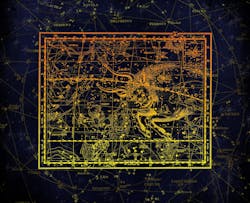Pairing sky-mapping algorithms with advanced immunofluorescence imaging of cancer biopsies, researchers at Johns Hopkins University (JHU) developed a platform to guide immunotherapy by predicting which cancers will respond to specific therapies targeting the immune system.
The platform, called AstroPath, melds astronomic image analysis and mapping with pathology specimens to analyze microscopic images of tumors.
The platform is a joint project of JHI’s Bloomberg~Kimmel Institute for Cancer Immunotherapy and the Mark Foundation Center for Advanced Genomics and Imaging.
Immunofluorescent imaging, using antibodies with fluorescent tags, enables researchers to visualize multiple cellular proteins simultaneously and determine their pattern and strength of expression.
Applying AstroPath, the researchers studied melanoma, an aggressive type of skin cancer. They characterized the immune microenvironment in melanoma biopsies by examining the immune cells in and around the cancer cells within the tumor mass. They then identified a composite biomarker that includes six markers and is highly predictive of response to a specific type of an immunotherapy called anti-PD-1 therapy.
PD-1 (programmed cell death 1) is a protein found on immune system T cells which, when bound to another protein called PD-L1 (programmed death ligand), helps cancer cells evade attack by the immune system. Anti-PD-1 drugs block the PD-1 protein and can help the immune system see and kill cancer cells. Only some patients with melanoma respond to anti-PD-1 therapy, and the ability to predict response or resistance is critical to choosing the best treatments for each patient’s cancer, the researchers explain.
The AstroPath platform is also being applied to studies in lung cancer and potentially can provide therapeutic guidance for many other cancers.
The research was published in Science.

